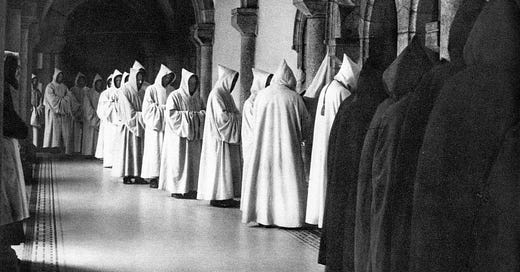In my previous post, after quoting Thomas Merton and Johannes Tauler on the spiritual “darkness” and “desolation” that one will likely experience in contemplative practice, I added that “contemplation doesn’t leave us simply in [that spiritual] void.” There is, of course, a natural follow-up question to that bold claim, and one of my interlocutors broached it: “What, then, lies beyond the ‘void’? What lies beyond that interior sense of desolation, or what John of the Cross (1542 – 1591) called ‘the dark night of the soul’?” That is an enormous question, in terms both of theory and practice (bearing in mind, that is, that the Greek word theoria in classical Christian theology refers directly to the practice of contemplation). Replying to that question will require more than a single Substack post, and the reply is bound not to satisfy, but — casting good sense to the winds — I will attempt it anyway. In this post, I will concentrate specifically on the raison d'être of Christian “asceticism” (or “discipline”), and I will do so by drawing from the monastic tradition. At the very center of the Christian tradition is – or should be – “ascetical theology,” and the institution that has preserved that reservoir of knowledge throughout the ages, sometimes very well and sometimes quite poorly, is monasticism. If we wish to deal with contemplative practice, then, we must look in that direction and be ready to learn from it.
Keep reading with a 7-day free trial
Subscribe to The Pragmatic Mystic to keep reading this post and get 7 days of free access to the full post archives.



